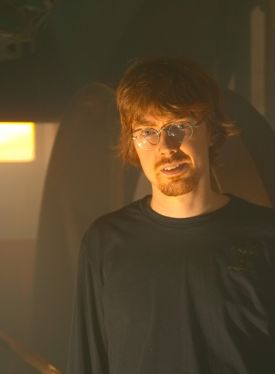
This is our second interview with him, and we really enjoyed the first one. A real videogame fan, revealing an encyclopedic knowledge, not only his dream became reality, work within this industry, but he is now one of the most relevant names in videogame music. Only a few more share this honor with him. Being the usual composer of one of the most successful sagas, "Hitman", now he has excelled himself, composing the score of Ubisoft most valuable crown jewel, "Assassin's Creed".
On the occasion of the second installment release, located in majestic Renaissance cities like Venice or Florence, we had the chance to talk with him about his vision on the current music industry for audiovisual, in general, and about his experience on composing for one of the most expected videogames, nowadays.
Ladies and gentlemen, Jesper Kyd:
BSOSpirit: I get to interview you again after the interview you granted us when "Hitman: Blood Money" was released, in which we did a revision of your entire career. By then you were one of the most important composers in the world of video games and today that condition not only hasn’t changed but your success has increased. That fan of video games and its music, Does still live in you, or having gained such notoriety and presence on a professional level in this world has resulted on being less addicted to video games as you were before?
Jesper Kyd: Thanks for the kind words. In answer to your question, I don’t feel any less passionate about the medium but I have less time to play games these days. Writing scores for video games are becoming a bigger undertaking. Blockbuster titles such as Assassin’s Creed 1 and 2 each has over 3 hours of music, with AC2 having 2 hours of the score performed by orchestra and choir. Each track in AC2 has lots of acoustic live recordings and since the game takes about 30 hours to complete all the music tracks will be used throughout the game a lot.
BS: At the end of our previous interview, you said you had no intention of changing places, that it was your desire to continue writing music for video games, because you had a lot of freedom and great fun. It appears that your thinking was quite prophetic of how things would be in the future, for now it's obvious that the video game composer is much less tied to claims from mad producers than the motion picture composer. Continuing with the prophecies, do you think in the future, as in blockbuster movies, video game music will have a much more suffocating control, limiting overly that freedom you have been enjoying?
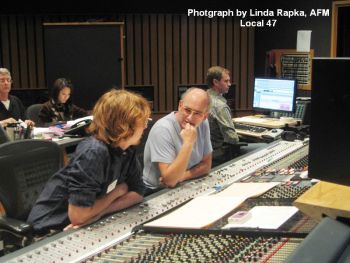 JP: It is true that some directors and producers in the film industry can be very demanding or limit the creative freedom for a score. When writing music for a video game the composer usually works with the audio team and there’s a down to earth atmosphere that in my experience really embrace experimentation. JP: It is true that some directors and producers in the film industry can be very demanding or limit the creative freedom for a score. When writing music for a video game the composer usually works with the audio team and there’s a down to earth atmosphere that in my experience really embrace experimentation.
BS: "Assassins Creed" is one of the video game franchises that have garnered more followers. Along with "God of War," "Gears of War," "Call of Duty: Modern Warfare" and "Uncharted", it focuses the attention of the industry. Does being part of one of those five giant best sellers necessarily translates into a greater involvement and work for you, knowing that millions of people will hear your music?
JP: I always try to give each of my scores everything I've got. I received a lot of positive responses about the passion I put into the Assassin’s Creed music and it was very rewarding to hear people appreciate this. Since Assassin’s Creed 2 takes place in Italy during the Renaissance, the development studio and I wanted to add even more depth, romance and passion to the score.
A lot of video games are made to satisfy the all-out action cravings of gamers, which has a place and I enjoy playing some of those games as well. However, experiences such as Assassin’s Creed 2 really are very different from other games. I am honored to be part of what I feel is a ground breaking title and I love the unique atmosphere and stories we portray in this game. It really feels, looks and hopefully sounds like no other game.
BS: You seem to have a unique relationship with characters of questionable morality, murderers or avengers. From Hitman to Assassins Creed, What is the main difference you find between these two franchises in a musical level?
JP: Each game in these 2 series are different. Altair from AC1 has different motives than Ezio from AC2. Ezio is driven and motivated by the tragic killing of his family. He seeks his own justice and revenge. Agent 47 is cloned in a lab to be a stone cold killer. He rebels against his makers and starts working freelance for the Agency. Ezio lives a life full of passion but with the Hitman series such as Hitman 2: Silent Assassin, Agent 47 seeks to become more passionate.
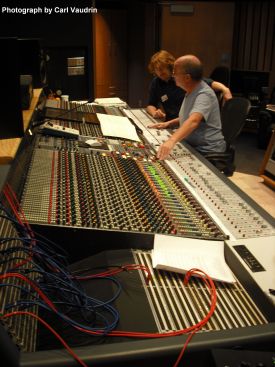 BS: I suppose they are both as your "children", so I can imagine it will be difficult to choose one or the other score, but from a creative point of view, Which one of the two franchises has demanded more from you as a composer and of which one are you looking forward more eagerly for a next chapter in order to develop further work in its musical mythology? BS: I suppose they are both as your "children", so I can imagine it will be difficult to choose one or the other score, but from a creative point of view, Which one of the two franchises has demanded more from you as a composer and of which one are you looking forward more eagerly for a next chapter in order to develop further work in its musical mythology?
JP: They are both demanding franchises to work on however Assassin’s Creed has a lot more music. In AC2 there is so much different music to write; there is 15th Century traditional music, Animus 2.0 atmosphere, hints of sci-fi, Abstergo Corporation etc. For Hitman it’s been more about scoring the locations as well as writing dark interior mindset music for Agent 47.
BS: Talking about "Assassins Creed", what led you to focus on places, atmospheres and environments rather than on the character of Altair, which has also been the basis on which you've written the sequel?
JP: Well, AC2 is full of character themes. There is music for the Assassin's brotherhood, which played a big part of the storyline in AC1. AC2 also has 3 variations of a theme written for Ezio’s family as well as music for Leonardo Da Vinci, the courtesan Madam, Ezio and Leo’s friendship theme, Templers theme, Christina’s theme (Ezio’s girlfriend), in addition to themes for the locations, gameplay specific moments as well as all the cinematics.
BS: Did you find any limitations that prevented you from writing what you had in mind or, on the other hand, you had complete freedom in every way?
JP: I didn’t feel there were any limitations. It’s my job to provide the best possible music for each scenario and so I work toward scoring each specific moment or place. Ubisoft was very open to my ideas and we worked together to come up with the appropriate mood.
BS: Let me share my enthusiasm and congratulations for your music for the sequel to "Assassins Creed". I think it is a perfection of what had already been built in the first installment, something different but improved. Is that also your perception?
JP: I don’t know if I see it as a perfection, more like a natural evolution, where we put to use a lot of elements we learned from the first game. We also worked hard to get everything recorded live and push the music forward.
BS: Of great importance once again is that fusion of electronics, soloists, orchestra and choir. Too much work, isn’t it? Tell us some story about this recording.
JP: Yes, it’s a lot of work getting everything to work together but it’s what I love to do. The challenge of writing a multi-stylistic and multi-layered score is what I enjoy the most. I don’t have to work with big orchestras or choirs for each score to enjoy the process.
I choose my projects based on if I find them interesting, not whether they have a big budget or not. Mixing electronics and synths with smaller live acoustic ensembles can also create powerful results.
BS: The female vocal is a very important feature in the score for "Assassins Creed 2”. Who is the soloist? Did you already knew her or it was necessary to conduct a hearing to find the texture of voice you needed?
JP: I have known Melissa for years and so I write the vocal parts for her voice, knowing how she will sing it. All the solo vocals were recorded during the writing process. We needed to see if this style of music would work in the game so waiting to record the vocals until the end of the project was not an option.
 BS: How has been recording in Capitol studios? Have you ever had the opportunity to record there before? BS: How has been recording in Capitol studios? Have you ever had the opportunity to record there before?
JP: It was my first time recording at Capitol and it was a great experience. There is so much history there and I love the room, the echo chambers in the basement and the friendly staff.
BS: Usually you have used the Hungarian Radio Choir, which you told us you had great fun working with. But in "Assassins Creed 2" you hired a more prestigious assembly, the Hollywood Orchestra and Choir. Can one really notice the difference this change makes, whether from an artistic or productive point of view?
JP: After relocating to Los Angeles I now have the opportunity to work with orchestras that are right here at my door step. So it’s a natural choice for me to work with local talent.
BS: Why is that we are not able to enjoy your music to both of Assassins Creed games on CD on its own, but only by buying it along with the game in this "Black Edition”? Is the CD dead?
JP: I don’t think the CD format is dead and I would love to see these scores released on CD but it’s not up to me.
However, we are really glad Ubisoft has decided to release a double CD worth of music digitally on sites such as i-Tunes and Amazon.
(You can find the soundtrack at:
Itunes
Amazon.com
Amazon.co.uk
Amazon.fr
Amazon.de )
BS: Does the music featured in "Assassin's Creed II: Black Edition" contain all the music one can find on iTunes, the two CDS?
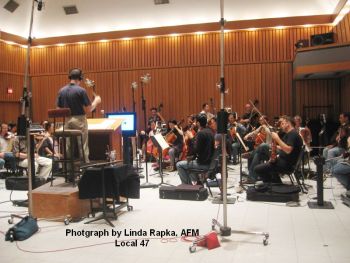 JP: I was asked to prepare the tracks for an audio CD so I could only fit 70 minutes out of the 114 minutes available on the i-Tunes release. JP: I was asked to prepare the tracks for an audio CD so I could only fit 70 minutes out of the 114 minutes available on the i-Tunes release.
BS: It comes as a DVD, does that mean that we will find the music in a multichannel format?
JP: To be honest I don’t know what format the disc will be in, could be DVD or CD. I was not asked to prepare the music in multichannel format.
BS: Tell us about your work for "Borderlands".
JP: For Borderlands we recorded with smaller live ensembles and the music is full of cinematic steel guitars, acoustic and electric guitars mixed with ethnic percussion and ambient elements. The soundtrack album will be released by Sumthing Else Music Works.
BS: Judging by the clips we have heard in your webpage, it’s a work with a rich instrumentation and detail. What did truly motivate you to undertake this project?
JP: I was really impressed by the concept of the game. It was an ambitious idea to mix FPS and RPG together and I also love the post-apocalyptic setting of the game.
BS: When it will be released by Sumthing Else?
JP: It will be available Dec 6 2009.
 BS: Let’s change of media, and focus on your most recent movie soundtrack, specifically "Staunton Hill", directed by Cameron Romero, son of George Romero. How did you get to be part of this project? BS: Let’s change of media, and focus on your most recent movie soundtrack, specifically "Staunton Hill", directed by Cameron Romero, son of George Romero. How did you get to be part of this project?
JP: Cameron is a big fan of the Hitman music and we have known each other for years. Staunton Hill was the first opportunity we had to work together. He was having problems with his current composer and asked me to score his film.
BS: The soundtrack is very dense, achieving a very tense atmosphere, but still featuring a clear sense of melody. Did you think that this approach was much better than an almost complete atonality?
JP: We didn’t want the music to give away the story. The first half of the movie is about setting up tension and building suspense and the second part is where things start to get really dark and scary. We didn’t think making a huge music style change was the best way to continue the suspense we had built during the first half of the movie, so I continued using themes for the 2nd half, where appropriate. There is some chaotic and creepy music for this section of the film but nothing really atonal.
BS: Will there be a release of this soundtrack either on CD or download?
JP: I hope so, I’m working towards it.
BS: You're nominated for the Hollywood Music Awards for "Assassins Creed 2”. Given all the awards you already have win, and the privileged position within the video game industry you enjoy, are you still moved as the first day by nominations and awards?
JP: I always feel surprised and honored when I’m nominated for my music.
BS: Finally, do you have any future projects of which you can tell us?
JP: I am involved with several new projects but unfortunately I cannot
share with you just yet.
BS: Thank you for your kindness, Jesper. We’ll meet again in the next interview.
JP: You're welcome.
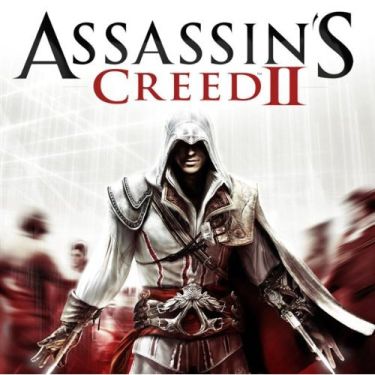
Interview by David Doncel
Translation by David Sáiz.
|





